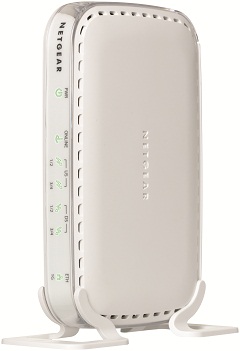Comcast Pulls Back On IPv6 Rollout, Citing Netgear Modem Glitch
The smarter way to stay on top of the multichannel video marketplace. Sign up below.
You are now subscribed
Your newsletter sign-up was successful
Comcast said it has temporarily rolled back deployment of the next-generation IPv6 protocol in parts of its network, with the MSO citing a compatibility glitch in a retail DOCSIS 3.0 cable modem from Netgear that knocked some customers offline.
"We recently identified that the retail Netgear CMD31T device ships with and runs an uncertified version of firmware that exacerbates a critical IPv6-related defect," the cable operator said in a statement. "To ensure Comcast customers with these devices will continue to have uninterrupted Internet service, we have rolled back IPv6 temporarily in some parts of our network to give Netgear more time to address the issue."
The issue affected fewer than 1,000 subscribers, according to a source close to Comcast.
Comcast said it expects Netgear "will soon address the issue for their retail devices, which we will test and deploy on an emergency basis."

Netgear, asked to comment, said that the company last week became aware of the problem with the CMD31T and was "immediately in touch with Comcast regarding the issue and within a day corrective action was taken... We are working closely with Comcast to ensure that customers do not face Internet disruptions for any such future upgrades to the system."
Comcast, in an update on its website listing approved DOCSIS devices, says the Netgear CMD31T device has "a known IPv6-related software defect. This prevents the device from being provisioned on the Comcast network."
The issue with the Netgear CMD31T modems on Comcast networks was brought to light Tuesday by Mike Demler, a Comcast customer in California who writes a blog called EE Daily News.
The smarter way to stay on top of the multichannel video marketplace. Sign up below.
According to a source familiar with Comcast's IPv6 initiative, the cable operator has known about the Netgear CMD31T's IPv6 compatibility problem for two years -- and that Netgear has been aware of the issue for that long as well.
Comcast is in the process of deploying IPv6 nationally, in a "dual-stack" implementation in which both IPv6 and IPv4 are supported on the client.
The move to IPv6 for Internet service providers around the world has become urgent as the pool of 4.3 billion available addresses in the current IPv4 is nearing total depletion. IPv6 -- which provides an astronomically large number of unique addresses -- and IPv4 are not compatible, so without some kind of translation layer websites and other Internet services hosted on IPv4 are invisible to users with IPv6-only end devices (and vice versa).
Comcast is among the ISPs participating in World IPv6 Launch day on June 6, 2012, along with Time Warner Cable and AT&T. Web content companies that plan to participate include Facebook, Google, Microsoft Bing and Yahoo, which will enable IPv6 on their main websites permanently beginning June 6.
In addition, two home networking equipment manufacturers -- Cisco Systems and D-Link -- have said they will enable IPv6 by default across their home router products by June 6.
